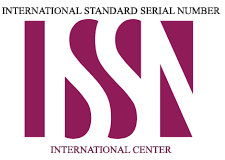-
Psychology
-
Advice
-
Educational Science
Post-traumatic stress disorder in patients recovered from COVID-19 infection: A cross-sectional study
Volume 4, Issue 2, 2022, Pages 263 - 273
Authors : Hadis Bahmaei
1, Poorandokht Afshari
2, Pravin Abedi
3, Saeed Ghanbari
4, Maryam Beheshti Nasab
5, Hatam Boostani
6, Saeedeh Askari*
7
1- Midwifery Department, School of Nursing and Midwifery, Ahvaz Jundishapur University of Medical Sciences, Ahvaz, Iran
2- Midwifery Department, Menopause Andropause Research Center, Ahvaz Jundishapur University of Medical Sciences, Ahvaz, Iran
3- Midwifery Department, Menopause Andropause Research Center, Ahvaz Jundishapur University of Medical Sciences, Ahvaz, Iran
4- Saeed Ghanbari Faculty of Health, Department of Biostatistics and Epidemiology, Ahvaz Jundishapur University of Medical Sciences, Ahvaz, Iran
5- Maryam Beheshti Nasab Midwifery Department, School of Nursing and Midwifery, Ahvaz Jundishapur University of Medical Sciences, Ahvaz, Iran
6- Author Hatam Boostani Department of Psychiatry, Ahvaz Jundishapur University of Medical Sciences, Ahvaz, Iran
7- Student Research Committee, School of Nursing and Midwifery, Ahvaz Jundishapur University of Medical Sciences, Ahvaz, Iran
Abstract :
Abstract
Objective: Post-traumatic stress disorder (PTSD) is usually caused by exposure to a traumatic event. The present study aimed to examine PTSD in patients recovering from COVID-19 infection.
Methods: This was a cross-sectional study on 200 patients who recovered from COVID-19 infection in two hospitals of Ahvaz, Iran. Data collection tools were a demographic questionnaire and the Posttraumatic Stress Disorder Checklist for DSM-5 (PCL-5). To analyze the data, descriptive statistical methods were used.
Results: 200 patients with a previous diagnosis of COVID-19 infection were enrolled in this study of whom 170 (85%) had PTSD. The total score of PTSD was 51.6±11.27. Compared to males, females were 9.4 times more likely to suffer from PTSD. The rate of PTSD among those who had children was 3.8 times higher than that of patients without a child. Also, patients who had suffered the loss of their relatives due to COVID-19 were 11.44 times more likely to develop PTSD.
Conclusion: Results of this study may be of help to mental health professionals in identifying patients at a higher risk and in need of immediate intervention. This can help to prevent possible upsurges of PTSD during future outbreaks of infectious disease.
Keywords :


